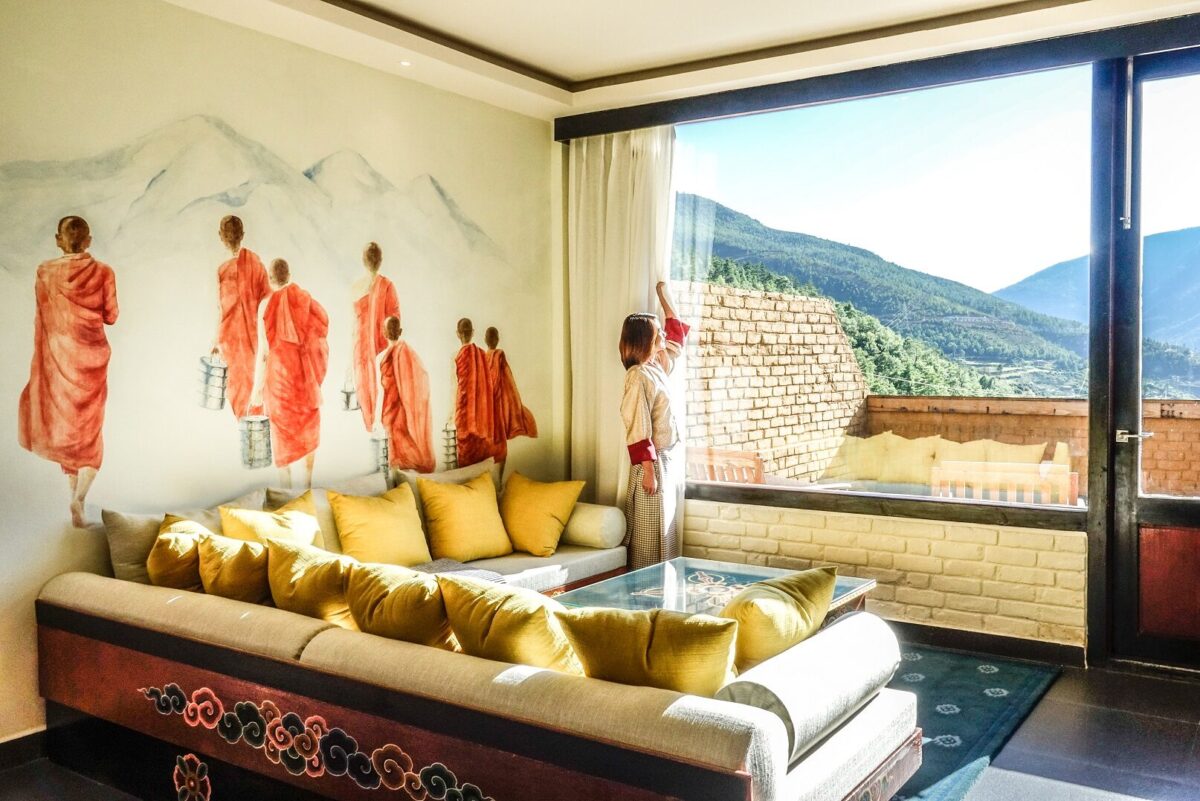Skift Take
Bhutan's commitment to high value, low volume tourism is underscored by its recognition that a sustainable development fee of $200 per person per night may hinder visitors from perceiving the true value of their experience.
Last year, Bhutan sent a shock to its tourism sector by raising its so-called sustainable development fee from $65 to $200 per night, per person for all tourists, excluding Indian nationals, who are charged $15 (Rs 1200) per night, per guest.
Now, even though it has a modest goal of just 98,000 tourists this year, the country is acknowledging the challenges the fee has created and is introducing several incentives to encourage longer stays:
- Travelers who meet the sustainable development fee payment requirement for a four-night stay can extend their visit with an additional four nights exempt from the daily levy.
- Those choosing a seven-night stay enjoy a waiver for up to seven extra nights.
- For month-long stays, tourists only need to pay the fee for 12 nights, with an exemption from the levy for an additional 18 nights.
Earlier this year, Bhutan had also started offering duty-free gold to visitors. Guests would have to spend at least one night in a certified hotel to avail the special duty-free pricing and would need to pay for the gold in U.S. dollars.
What Prompted the Decision?
Bhutanese Prime Minister Lotay Tshering highlighted the collaborative approach taken in developing these options for longer stays, considering industry feedback and recommendations from the Association of Bhutanese Tour Operators.
The tourism department recently announced that through May 10, a little more than 52,000 tourists had arrived in Bhutan since its post-Covid reopening on September 23.
More than 32,000 were from India, while a little less than 20,000 were international and paid the fee of $200 per night.
This reduction in fees will give tourists an opportunity to explore more of the country, especially the eastern part of Bhutan, beyond Bumthang, said Garab Dorji, CEO of travel company Truly Bhutan.
“We hope that these incentives will also increase the number of arrivals of dollar-paying tourists. We now have much better road connectivity than in the past, which will help them save up on the travel time,” said Dorji.
How Bhutan Spends Its Sustainable Development Fee
Bhutan sees tourism as a key growth driver, Dorji Dhradhul, director general of the department of tourism of Bhutan, told Skift.
Dhradhul said the sustainable development fee enables investment in transformative programs that preserve cultural traditions, protect heritage and environment and upgrade infrastructure.
“Some of the money goes towards offsetting the carbon footprint of visitors by planting trees, up-skilling workers in the tourism sector, cleaning and maintaining trails, reducing the country’s reliance on fossil fuels and electrifying Bhutan’s transportation sector,” Dhradhul said.
In light of its vulnerability to climate change, including glacial melting, floods, and unpredictable weather patterns, Bhutan is increasing its efforts to maintain its position as one of the world’s rare carbon-negative countries. To support this objective, the country is also directing its sustainable development funds towards this cause, Dhradhul added.
What Tourism Businesses Want
Kapil Chopra, founder and CEO of The Postcard Hotel, who runs The Postcard Dewa in the Bhutanese capital city of Thimphu, appreciated the fee reduction, but suggested a simpler approach of reducing the fee per night.
“By implementing a straightforward system where the fee is halved from the current level for each night of stay, the government could have encouraged a higher influx of tourists to the country,” he said.
However, despite the concerns, Chopra remains optimistic. This optimism is already evident in the bookings that The Postcard Dewa has been witnessing as he said they have been observing several sold-out dates for the months of October and November.
New Markets Coming In
Even as Bhutan’s inbound tourism numbers have been lower than in previous years, Dhradhul said it has been higher than what was expected and the revenue collected is on a par with 2019.
The country now aims to touch pre-pandemic tourism numbers by the end of 2024.
Traditionally, North America, Europe, and India have been the primary contributors to Bhutan’s tourism industry, with India standing out as a particularly robust market for hotels.
However, Chopra noted that there has been a surprising emergence of the Middle East as a key destination for travelers visiting Bhutan.
As new markets emerge and existing ones thrive, Bhutan is looking to maintain its status as a unique and sought-after destination.
The Daily Newsletter
Our daily coverage of the global travel industry. Written by editors and analysts from across Skift’s brands.
Have a confidential tip for Skift? Get in touch
Tags: asia monthly, bhutan, climate change, fees, green, postcard hotel, sustainable tourism
Photo credit: The Postcard Dewa in Bhutan. The Postcard Dewa
